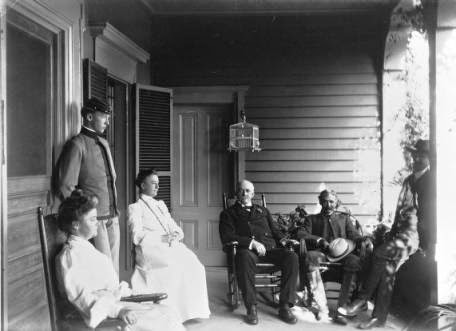It's hard for me to convey the sheer quantity of information that I have learned since starting this course two months ago. I leapt into the void that was my understanding of information technology and have emerged with a new set of skills that will serve me well for years to come.
My first major accomplishment was the creation of
my very first website. In the spirit of all my endeavors, I made this infinitely more complicated than it needed to be. I created a section with links to all of the
blog posts that I wrote when I was living in Ireland ten years ago. The site that they come from is so old that they are tied to an email address that I no longer have access to, and finding the blog has been a chore whenever I went looking for it. Now I have all of those posts in one place, organized by month. The other facet of this website that required an enormous amount of effort was the inclusion of
book reviews that I had written for Good Reads. I learned how to create a navigation bar on the left side of the page and took advantage of a cascading style sheet to save time on formatting each of the pages. I'm pleased with my work, and though it might not be the best looking website in the world, it is a unique creation, made by hand.
My second major accomplishment was emerging unscathed from a foray into the world of
Unix commands. The interface is a bit intimidating at first, and reminds me of the first, DOS-run computers that we had at home. It's strange to see that little black box against the lively and colorful backdrop of my Windows 8 computer, but it seems almost like a window in a world behind the pretty facade. The logic is clear and unforgiving - if you type so much as a letter wrong, your results will be skewed or just non-existent - but the accomplishment that I felt when I was able to create new directories and navigate between them was very real.
I feel like I've gotten very poetic for a post about my IT progress, but perhaps that is fitting. I've moved beyond thinking of hand tagging and coding as cold, sterile instruments. I can see know that they can make things richer and more vibrant, and the only thing that was holding them back was my own attitude.
**************************************************
For this post's peek into the past I thought I would show you a bit of
Huntington history. The white haired gentleman with a mustache in the center is Henry E. Huntington, the founder of the fine institution where I work. The tall awkward young man on the left is future general, George Patton, Jr. (though he's actually the third of that name; did you know that?) The Pattons and Huntingtons were neighbors from the late 19th century, and when George was bringing things (that maybe he shouldn't have had) back to the United States at the end of the Second World War, he left some of them with the Huntington Library. One example, which was recently transferred to the National Archives, was the original
Nuremberg Laws, signed by Adolf Hitler himself.





